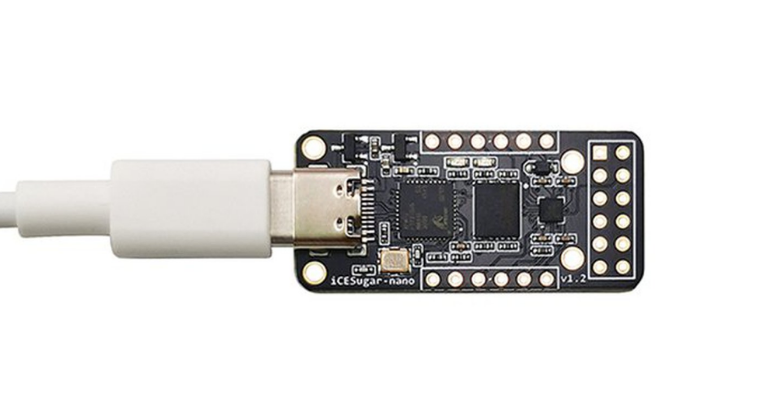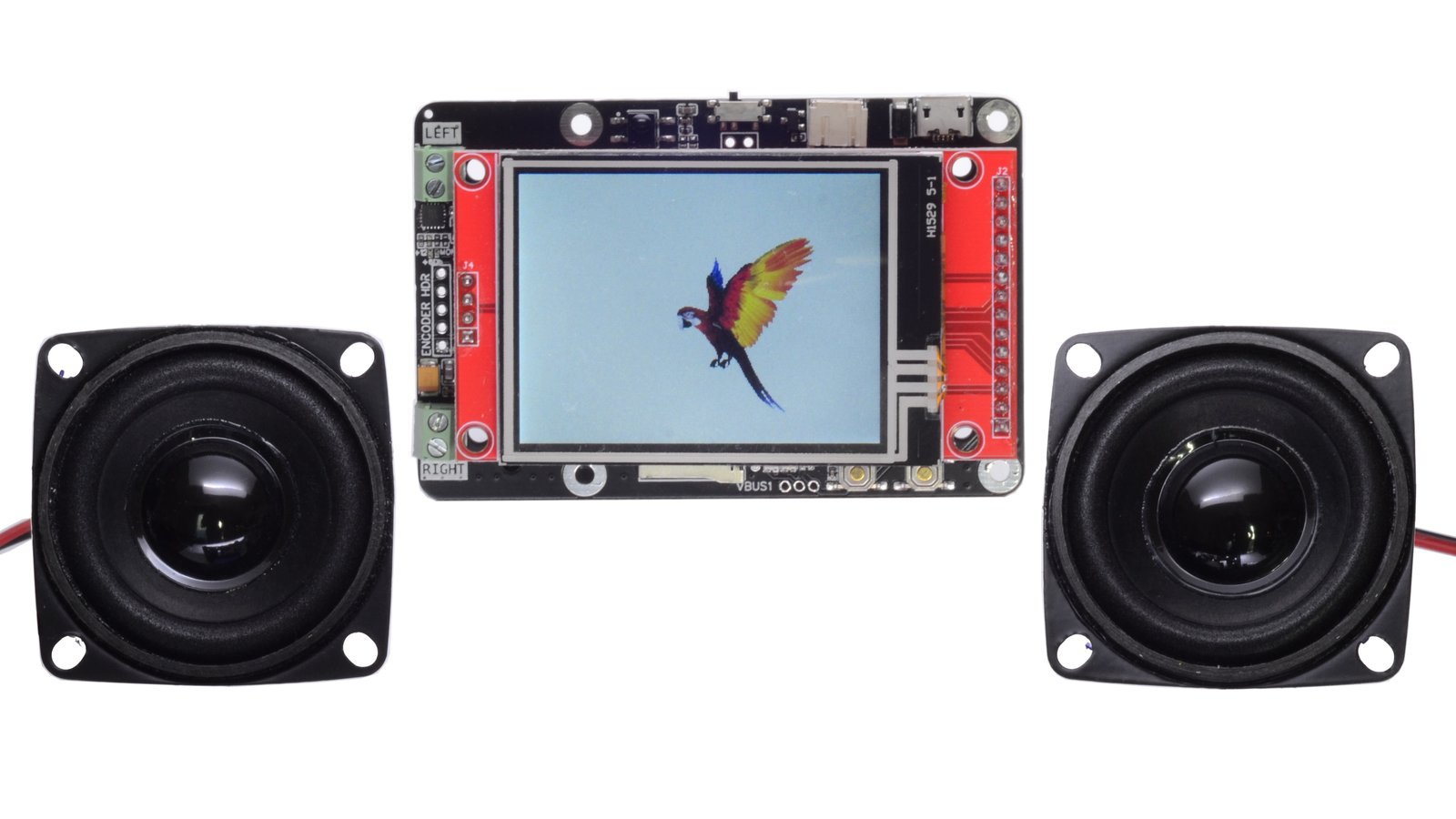
Muse Lab has released a compact iCESugar-nano FPGA development board powered by the Lattice Semiconductor iCE40LP1k and a RISC-V core. This is the latest addition to Muse Lab’s iCESugar long list of open-source FPGA development boards that is compatible and supported by yosys, nextpnr, and icestorm– open-source toolchains.
The iCE40LP is an ultra-low-power and non-volatile FPGA that has five devices with 384 to 7670 Look-Up Tables (LUTs) and 10 to 206 input/output. However, the specific iCE40LP1k has only 1280 LUTs with 3x high current LED drivers and 95 maximum programmable input/output pins. The manufacturer Lattice Semiconductor provides a wide range of design tools, allowing developers to design complex applications on minimalistic iCE40LP devices.
Specifications of iCESugar-nano FPGA Development Board
- Circuit: Lattice Semiconductor iCE40LP1k and RISC-V core
- FPGA specifications:
- 1280 logic cells
- 64K bit RAM
- 3x high current LED drivers
- 1x PLL
- Debugger iCELink
- Drag and drop programming
- CDC serial port to communicate with FPGA
- Provides 12MHz clock for FPGA as an external clock
- Peripheral
- Type-C USB for supply power, download and debug
- 2MB SPI-Flash W25Q16
- PMOD connector and two 1×6 pins PMOD connectors
- Dimensions: 3.9×1.8 cm
The Nano FPGA development board includes three PMOD connectors that break out all of the FPGA’s available input/output (IO) pins. Furthermore, based on the Arm’s Mbed DAPLink, an iCELink is used for debugging and drag-and-drop programming, thereby making bitstream installation as simple as plugging in a USB flash drive. Also, for direct connections to the FPGA, the board offers a USB CDC serial connector, and the iCELink has an adjustable clock. Development and testing of the board can be done with just one TYPE-C cable.
To get started with the FPGA development board, the manufacturer recommends using a virtual machine, as it is “simple and convenient.” Using FPGA toolchain icestorm and gcc toolchain riscv-gnu-toolchain, you can work on the board, alternatively, there also comes a pre-built toolchain provided by xPack and SiFive.
For Windows setup, the developer can use the msys2 environment to set up the open-source toolchain and it can be downloaded from here. Priced at $19, Muse Lab’s iCESugar nano development board is available to order at the Tindie store. For other relevant information on the board schematics and source code, head to the project’s GitHub repository.







